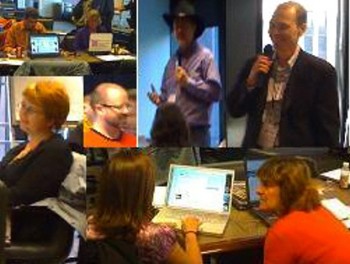In case you missed this … I wrote this about a year ago, yet it seems just as valid now.
Not All Apologies Are Equal

In relationships, things go wrong. Person to person or in business, mistakes and missteps can be life changing. A wrongly placed word or deed can bring in question what had gone without thought. Suddenly trust, integrity, honesty, sensitivity, authenticity and the core values that connect us are tested.
Mistakes. No human enterprise or individual gets by without making them. We might not mean them. No harm might have been intended. Yet, we’re not harmless — we can cause hurt or damage by the way we behave. How we respond when we do, is what makes a leader.
In a business relationship recently, my property was mishandled. When I asked about it — when and how it happened — the representative said something like this …
I hear you. We’re sorry it happened. We’re looking into it, but I doubt we’ll ever know the exact sequence of events. Can we move forward now?
Not all apologies are equal. I’m not the only one who wouldn’t call that an apology.
An apology that deflects attention, that says “I regret it happened,” is not an apology.
An “I’m sorry” that doesn’t own the damage done won’t rebuild trust.
An incomplete apology is a missed opportunity to build a stronger relationship by learning from what went wrong.
Apologies that Rebuild Trust, Relationships, and Reputations
Mistakes. No human enterprise or individual gets by without making them. We might not mean them. No harm might have ever been intended. The fact remains, we’re not harmless — we can cause hurt or damage by the way we behave. How we respond when we do, is what makes a leader.
Meet a mistake with trust, the mind of a learner, and a truly other-centered apology and a newer, stronger relationship can be the result. To offer a relationship-building apology, we have to show up whole and human — with our head, heart, and purpose reaching out to fix the bonds that we’ve broken.
No person has lived a life without once behaving badly. Apologies can connect us on that point. A relationship-building apology includes many parts and a whole human behind them.
- a statement of regret …
I’m sorry. - ownership of the act and responsibility for the outcome …
I behaved badly … It was may fault this happened. - acknowledgment of hurt or damage …
It made you feel small … It broke your — … It lost you business. - a promise for better behavior in the future …
It won’t happen again. - a request or or statement of hope for forgiveness or renewed trust …
I hope you can believe in me.
Apologies are about admitting human error. If you worry about saying the wrong thing, write it down and offer a choice the other person a chance to read it or listen while you do. The point is to be human and mean what we say.
Keep the apology simple. Don’t use an apology to move other issues forward. Save other conversations for other days.
Never lose the opportunity to apologize.
Never take that opportunity away from someone.
Which Social Media Apologies Rebuild Trust?
In the online world, every mistake has a potential for magnification. Every word has millions of opportunities to be misread. The ability to apologize with grace and respect can build respect, relationships, and reputation. In a trust economy, the apology is a powerful form of communication. Simply said and complete, a sincere apology shows respect, inspires confidence, and makes a great step toward rebuilding the trust to move forward.
Here are five well known social media apologies …
Dell’s 23 Confessions
A Commitment On Edelman and Wal-Mart
JetBlue Launches Cross-Media Apology Campaign
Turner Broadcasting Apology Letter
Motrin
In your opinion, which social media apologies rebuild trust with the community?
–ME “Liz” Strauss
Work with Liz!!




 On every call be sure to:
On every call be sure to: